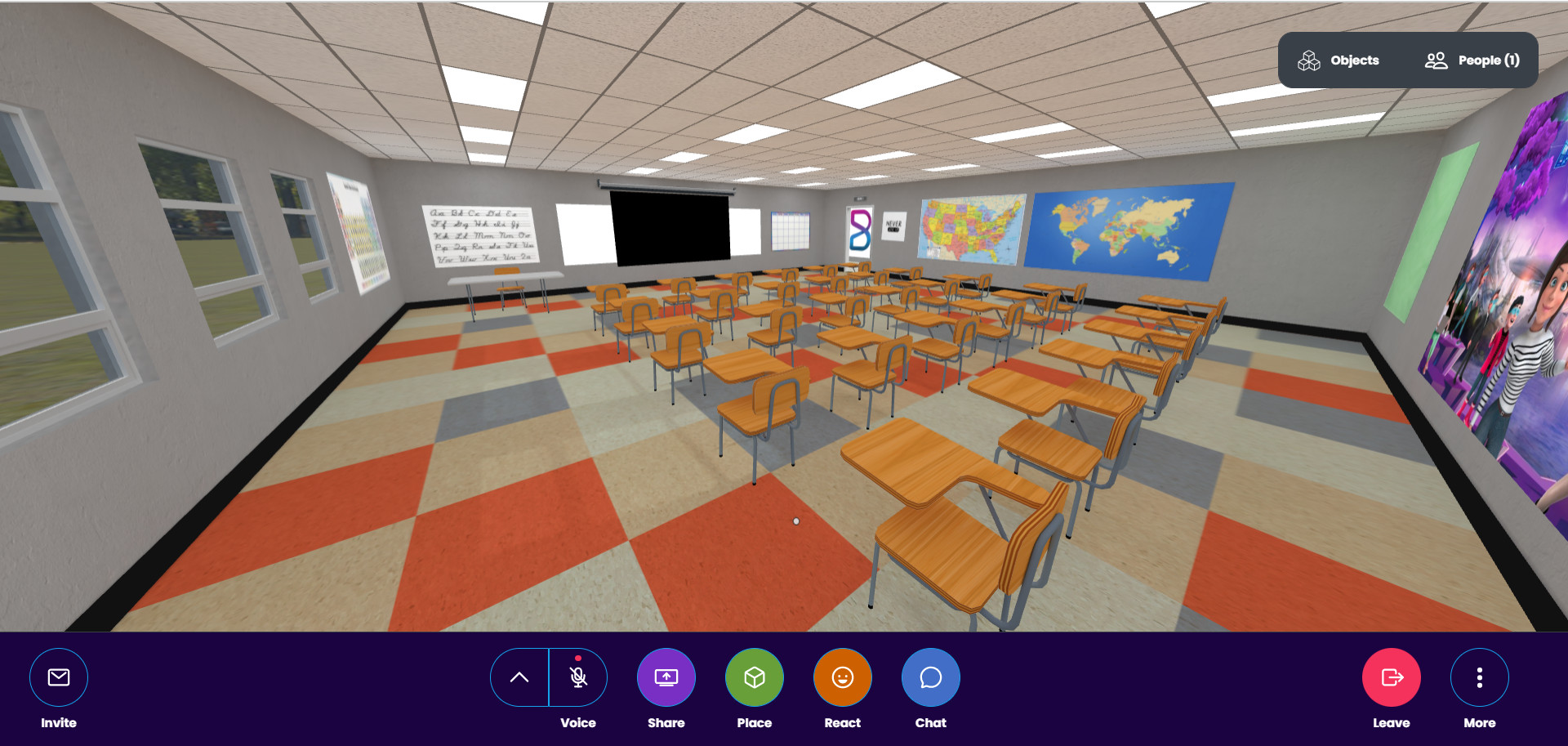The term “metaverse” is currently trending on social media. So, have you considered how education will evolve in the metaverse age? Is that a possibility? Let us go exploring with Bizverse!
1. Opportunities for education when teaching and learning in the metaverse
Teaching and learning in the metaverse may appear to be a far-fetched concept only attainable in our fantasies, but it is already a reality. Students and teachers can connect in the digital world no matter where they are in the real world. Such functionality can help educators to improve and develop further.
The Metaverse will open up a world of possibilities, with a significant impact on education. Furniture can give way to first-hand entertainment of a historic site at any time. Students can explore, question, and support their learning with experiences. In the classroom, children will no longer be bored. Instead, because of the power of the virtual world, students can be enthusiastic about learning.
Teachers can then use their knowledge to accurately transmit information to students. Teachers can not only talk about real-world knowledge but also let students see and experience it in an immersive 3D environment.

2. The confluence of Metaverse education with VR/AR technology
Training using VR/AR technology is commonly known as the process of learning in a simulated or artificial environment. Because of its advantages, this technology is being used to increase the quality of education and training, particularly in the domains of health, engineering, military, culture, tourism, scientific research, and aerospace. space and pillars…
In fact, providing students with a hands-on learning environment is essential for the full development of practical abilities, which is a significant problem for the educational system, particularly for students programs that necessitate the usage of a lab.
Educators are beginning to rely on VR simulations to construct learning experiences, which is an unavoidable tendency in the rapidly expanding technological world. The use of virtual reality (VR) technology in education, in general, and in teaching in particular, provides students with a new and more effective learning platform than traditional teaching approaches.
Virtual reality technology provides students with a realistic, intelligible, rich, and engaging experience that is far more engaging than books, the internet, or even films. Lessons become more vivid and particular, and learners will engage with and approach the virtual world in order to dig deeper and better understand them, making them feel both engaging and simple to grasp. a deeper understanding of the subject and memorization.

3. The advantages of creating a learning environment in the metaverse
The use of the Metaverse in education has a number of advantages over traditional approaches. Educators will have complete control over student interactions in the metaverse and will be able to limit bullying or segregate students for disciplinary reasons by simply adjusting some permissions in cyberspace. This allows students to concentrate on their academics rather than being distracted by bullies or other distractions.
Metaverse’s educational environment will be designed to be more rich and appealing for teachers’ lesson plans. To create a truly fantastic environment that will capture the attention of students of all ages. Not to mention that the metaverse environment can recreate real-world locations, taking immersion to new heights. In addition to visual immersion, the metaverse world can provide more physical interactions. When students are wearing assistive devices, virtual reality headsets and controllers are designed to feel natural and reproducible.
As a result, educators can create learning experiences that incorporate nuanced hand movements, such as teaching students how to write or demonstrating sign language. When the kids exit the virtual world and return to reality, their muscle memory will be in place, and recalling their learned experiences will feel the same.
It is clear that the use of the metaverse in the education industry will bring many completely new, intuitive, and vivid training methods to make learning much more interesting, while also saving money and improving quality student learning.
